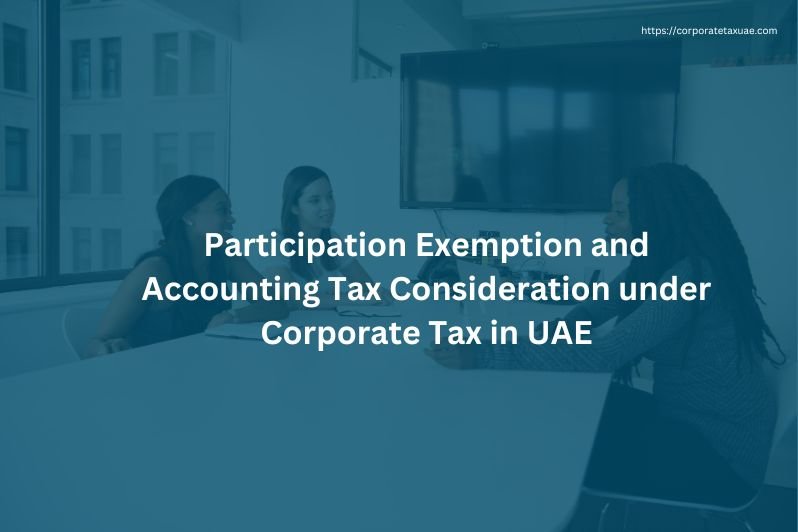Ministerial Decision No.116 of 2023 stipulates the conditions for Participation Exemption, exempting companies from paying corporate income tax on dividends, profit-sharing, and capital gains from "participating shares for corporate tax purposes. Therefore, Taxable Persons are advised to seek the services of Corporate Tax UAE to ensure compliance with the Corporate Tax Law.
Conditions for Participation Exemption
For corporate tax purposes, the relief applies to various types of equity interest, including preferred stock, common stock, redeemable stock, and members' and affiliates' shares, if the total cost of acquiring the equity interest is 4 million or more dirhams. This guarantees that businesses domiciled in the UAE that make certain investments in foreign corporations and satisfy the necessary criteria won't pay UAE corporate tax on those investments.
-
Benefits of a double tax treaty
The benefits of a double tax treaty can be availed. The accounting rules that apply in the UAE are called International Financial Reporting rules (IFRS), and larger companies with annual revenues over Dh50 million are required to utilize them. As per the Corporate Tax Law, SMEs with annual revenue of up to Dh5 million can utilize IFRS. The tax statute indicates that 'cash basis' accounting may be employed by companies to further ease the compliance burden; the judgment confirms that enterprises with less than Dh3 million in revenue may utilize "cash basis" accounting, which would further lessen the compliance burden.
-
Tax Group
The corporate tax Law clarifies the definition of consolidated accounts for tax consolidation purposes. After excluding intra-group transactions, this statement is the result of combining the separate accounts of the parent company and each subsidiary which are part of a tax group. Entities should estimate the deferred tax effects and estimate deferred tax assets (DTA) / deferred tax liabilities (DTL) for the reporting periods commencing from January 16, 2023, including the interim statements.
Read more: Formation of Tax Groups for Corporate Tax Purposes in UAE
Provisional Tax Return
-
Transitional Provisions
The taxpayer's opening balance for corporate income tax purposes is, for several items of the balance sheet, the accounting balance at the end of the previous year, subject to any conditions or adjustments provided for in subsequent decisions of the Council of Ministers. It made it easy for the taxpayer to calculate taxes for the preceding period; nevertheless, the transitional provisions cover some areas that require further considerations that may arise in the event that the companies have not yet prepared the individual financial statements or there are tax-relevant consolidation adjustments. Possible layoffs
-
Exemption for other entities
While the law may exempt many companies from tax (or make them taxable at a 0% tax rate), some of these companies may be considered taxable under current law. Free zone companies are also required to carefully consider their legal status as these companies are granted local free zone tax-exempt status.
Read more: Who is Exempt from the UAE Corporate Tax?
Seek the services of Tax advisors in UAE
As per the Corporate Tax Law in UAE, dividends and other distributions of profits from a share, for instance, five percent or more shares in another company, are exempt from corporate tax under certain conditions. The resolution provides that the instruments such as stock include redeemable, common, and preferred stock along with all shares and associates, etc. when categorized as equity under accounting measures. Further, the decision explains other characteristics, such as liquidation proceeds, capital requirements, losses, and tax losses of foreign permanent establishments. Therefore, Taxable Persons are advised to seek the services of Corporate Tax UAE to ensure compliance with the Corporate Tax Law.
Mostafa is a seasoned Tax Consultant with over 5 years years of experience gained in diverse taxations matters. He has vast expertise in settling tax disputes with the Federal Tax Authority and handling of tax procedures in compliance with tax laws. He is adept in investigating underlying tax intricacies and offering expert tax advisory. He is also well-versed in conducting tax analysis’s and negotiations with the Tax Regulators, upon tax preparation and filing. Mostafa specializes in the areas of Tax law, Auditing, Accounting and Banking law.
